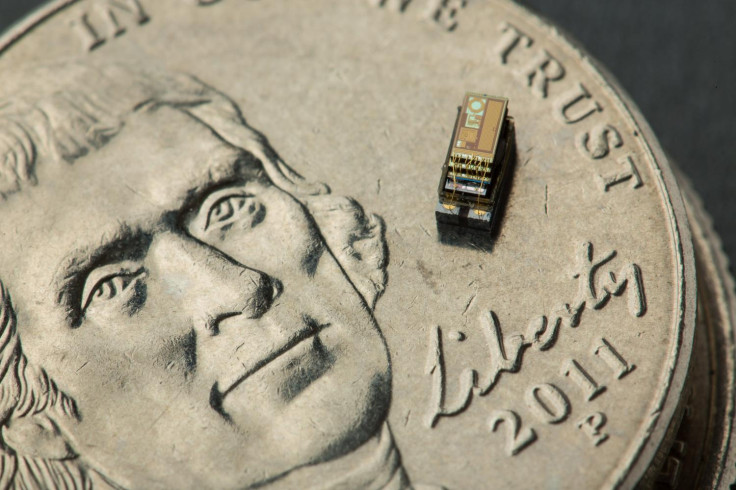Michigan Micro Mote: World's smallest computer is powered by ambient light

Computer scientists from the University of Michigan have invented the world's smallest complete autonomous computer, and being the size of a grain of rice it could revolutionise the Internet of Things (IoT).
The Michigan Micro Mote (M<sup>3) measures just 32mm cubed and is the product of over a decade of work by the staff and students at Michigan's computer science department, who have been trying to make computers as small as possible to deal with increasing demand for smart, connected devices.
"To be 'complete' a computer system must have an input of data, the ability to process that data - meaning process and store it, make decisions about what to do next - and ultimately, the ability to output the data," said Professor David Blaauw, who researches integrated circuits and VLSI design for the University of Michigan.
"The sensors are the input and the radios are the output. The other key to being a complete computer is the ability to supply its own power."
The device is currently able to take photographs, record temperatures and pressure readings, and then send that information to a base station, using sensors for the input and radios for the output. A tiny 1mm<sup>2 solar cell absorbing ambient light is used to power the computer.
And of course, a computer needs a processor, so the M<sup>3 has a miniscule Phoenix processor that measures 915 x 915µm<sup>2, using a super low operating voltage of only 500pW.
The maximum range that the M<sup>3 can collect and transmit data is 2m at the moment, as if the researchers wanted the distance to be any longer, they would need to create larger antennas and larger batteries to power the antennas.
The researchers hope that the M<sup>3 will be used in a variety of applications including home automation, environmental and industrial monitoring, as well as being injected into the body for medical monitoring purposes.
"Down the road we want these sensors to be able to talk to one another, and we're currently working to extend their range to about 20m," said Blaauw.
At the moment, the researchers are working to make the M<sup>3 even more powerful, as well as sending out units of the tiny computer to researchers in various industries to create even more applications, such as monitoring concrete and oil wells, to observing the behaviour of snails.
© Copyright IBTimes 2025. All rights reserved.






















